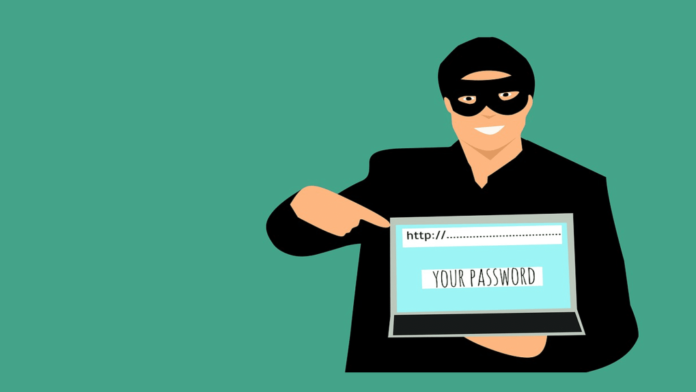I know – a few months ago I fell for an online scam.
I never felt so stupid in my life as I did ONE SECOND after I hit the Submit button.
With $1,000 of my money on its way to crooks, I realized I’d let greed make me vulnerable.
Maybe you feel safe. You’re not looking to work online. So you’re safe, you believe.
According to a survey done by the online security company McAfee, 30% of Americans admit to losing over $500 through online fraud in 2019. So I’m not alone.
I Felt Safe Too
I’ve been online since 1995. I’ve deleted more Nigerian prince emails and suspicious attachments than there are stars in the sky.
But this year I answered an online appeal to work at home for a high hourly wage. They kept me waiting for a few days, then said I’d gotten the job. I needed a ton of expensive computer equipment they knew I didn’t have. So I had to order it. Of course, they’d pay for it. They overnighted me a large check, which I deposited into my checking account.
But they wanted me to get started ASAP, so since I already had their check, I should just send MY money to the computer dealer’s bank account.
My money. That’s a MAJOR red flag.
(Of course, the check they overnighted to me failed to clear the bank, but I wouldn’t know that for a few more days.)
NEVER send your own money to somebody you don’t know.
Or even if you think you know them. Or you believe you’d just deposited $4,000 of their money into your bank account.
They’re Scamming Nervous Grandparents
With so many young Millennials roaming the world as digital nomads these days, their grandparents are falling for the “globe-trotting grandchild” scam.
That’s when you get a message telling you how your grandchild is in trouble with the law or hospitalized in some foreign country, and needs you to send money right away.
It’s like that Warren Zevon song, “Send Lawyers, Guns, and Money.” Only the message is coming from criminals, not your grandchild, and they want only your money.
Your Money Isn’t Safe Inside the United States Either
One reason I got suckered is because I was told to wire money to a US bank account. To wire money, you have to know the name on the account, the address of the account, the name of the bank, its routing number, and the account number. (All the stuff you don’t want scammers to know about your bank account.)
Of course, none of that means anything if you wire money to a foreign country, but you should be safe inside this country, right? I mean, I had all that information about the account, and it was with a major big-name national bank.
I called the scammer’s bank, and they point blank refused to help me. They didn’t care I’d sent the money under fraudulent circumstances. They refused to block the transfer, and wouldn’t listen to anything I said.
The Officer at Bank of America was Extremely Helpful
After that useless call to the bank the scammers used, I ran to my local branch of Bank of America. The officer there was outraged and began calling to try to get my wire blocked because it was based on fraud.
While on hold, she kept telling me how she or anybody at Bank of America would have refused to send that wire. She told me how a woman had once wanted her to wire money to a man who was going to rent an apartment from her but needed funds to move in. The woman and her father got angry but later sent her flowers to thank her for saving them thousands of dollars.
Thankfully, Bank of America did eventually recover around $300 of mt money, but it took three months.
Remember – when you wire money, you can’t depend on getting it back. Even if it’s to a bank account in the United States.
That’s even more true of sending money by Western Union and MoneyGram.
What Greed or Fear Could Make You Vulnerable?
As soon as there’s any news of changes in the law regarding Social Security or taxes, con artists figure out a way to frighten seniors about the change, getting them to send money or give out their sensitive information.
Or they make up news to frighten you.
Be EXTREMELY cautious of anybody who calls you claiming to be from Social Security, the IRS, a financial institution, a hospital or anyplace else that affects your finances or your health. Don’t give out your Social Security number, your Medicare number, your bank account information, credit card number or any other sensitive data, such as passwords, over the telephone to somebody who has called you.
If you have any doubt, look up the organization’s public telephone number, and key in the number. Don’t just reply or redial to a number that called you.
The officer at Bank of America told me she knew of another woman scammed by somebody calling her up to report she owed money on parking tickets, but she could pay her tickets by credit or debit card over the telephone. So, she did – to the con artist.
Be careful of emails from important companies and government organizations. Check the domain of the email address.
For example, the Social Security Administration does use “name@ssa.gov.”
But they do NOT use “SocialSecurityAdministration@gmail.com.”
Check Websites Out Carefully Too
Scammers are good at setting up websites that are fake versions of Amazon and other online retailers. Before you put in your credit card information, check the domain and its precise spelling. Make sure it’s really “amazon.com” or whatever, instead of “fakeamazon.com” or “aamazon.com.”
Also, treat links like telephone calls. If you’re interested in a particular shopping special, don’t click on the link. Type in the web address of the web store, then find the sale.
Be especially suspicious of emails demanding you go to their site by a special link to update your contact and billing information.
Also, make sure any site that wants your credit card number starts with “https” not “http” The “s” means it is secure. And that line will display a small picture of a closed padlock.








